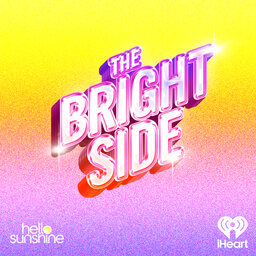Reclaim Your Sense of Self with Dr. Sara Kuburic
For those of us who have ever asked “Who am I?” — this one’s for you. Dr. Sara Kuburic — aka The Millennial Therapist — has asked herself this question, and dedicated her career to helping others answer it. She delves into the distinction between our identity and our roles, how we often lose ourselves in the expectations placed upon us, and how taking responsibility can be sexy.
In 1 playlist(s)
The Bright Side: A Hello Sunshine Podcast
The Bright Side, the hit podcast from Hello Sunshine, is back for a brand new season! Every Monday, …Social links
Follow podcast
Recent clips

Self-Care Is a Lie We’ve Been Sold—Dr. Pooja Lakshmin Explains What Actually Heals Us
46:53

Understanding GLP-1 Medications: Hormones, Menopause & the Science Behind the Headlines with Dr. Rocio Salas-Whalen
38:19

Replay: Karen Pittman on The Morning Show's Wild New Season and Leaving Imposter Syndrome Behind
41:46
 The Bright Side: A Hello Sunshine Podcast
The Bright Side: A Hello Sunshine Podcast